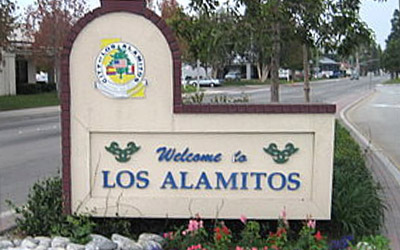Worried that another state agency will swoop in and grab the remaining amount of local taxing power, the city council in a special meeting Feb. 3 discussed the possibility of seeking a sales tax increase of 1.5 percent, though they will take the discussion to the city voters before making a final decision.
City attorney Michael Daudt and Finance Director Erik Hendrickson explained that the California Revenue code prohibits local governments from increasing their tax base more than two percent.
Council members perked up even more when they learned that a state agency has already captured one-half percent of that existing taxing power.
As the city sprints toward the finish line of a two-year process to put itself back on a sound financial footing, council members have until July to continue discussing their options before placing a measure on the ballot.
While a one-percent sales tax would provide the city sufficient revenue to both meet its pension obligations and run the city without any noticeable reduction in services, the added half-percent would allow for capital improvements.
The additional half-cent discussion comes following a series of outreach meetings and includes the results of a professional survey, in which had voters indicated to city officials they may be supportive of a one cent sales tax, which will marginally provide sufficient new funds to continue operating the city while also paying off a massive pension debt.
Council member Dean Grose said the city should not follow the example of nearby Seal Beach, where voters last year approved a one-cent sales tax which, according to Grose, was mostly being used for “salary increases.”
Seal Beach will potentially have to go back to voters again soon, as likely will the city of Westminster, Grose suggested as the city should strongly consider the additional half-cent.
According to Finance Director Erik Hendrickson, a one-cent sales tax would provide sufficient revenue to continue to operate, but a 1.5 cent sales tax would also give the city an option to pursue some urgently needed capital improvement projects.
Moreover, the council was concerned to learn that the Orange County Transportation has already used one-half cent of the city’s taxing authority after which each member suggested the city should try to use the remaining authority before another state agency gets approval to get a portion of the sales tax.
Translated, this means that one-half percent of all sales taxes collected in the city of Los Al is sent directly to OCTA. The Council expressed concern that if they did not use the remaining 1.5 percent for themselves, other state agencies might try to have their own measures approved.
“My personal feeling is that given the situation, when citizens look back years from now, they will think it was the right thing to do,” said Mayor Richard Murphy, referring to the additional half percent. If we’re going to get taxed, let’s keep it in the city,” he added.
Council member Shelley Hasselbrink said she has been speaking with her neighbors and believes “we can do this.” Based on her personal interaction with residents, Hasselbrink suggested she thinks once voters understand the entire taxing scenario, they will support adding the additional half percent to the one percent. “Somebody’s going to get it and it might as well be us,” she said.
“We need a one-cent sales tax to survive,” said council member Mark Chirco. While he’s open to support adding the additional half percent, Chirco said he first wanted to see “pretty good assurances” that residents would favor the increase to 1.5 percent before actually agreeing to ask for the entire amount.
Council member Tanya Doby said the city needs to put forward a “united front,” regardless of what they decide to do, adding that getting out to the neighborhoods was the best form of outreach.
It also seemed clear from the special meeting discussion that the city is also not interested in putting more than one measure on a single ballot, concluding that also putting an increase in the hotel transient occupancy tax on the same ballot would confuse voters.
The city of Los Alamitos only currently charges incoming guests eight (8) percent while the law allows up to twelve (12) percent. Hasselbrink said the city should wait at least until the Marriott property now under construction is completed next year before seriously discussing any change.
Even with some grumbling about the last survey performed by FM3, the council agreed to potentially bring them back in to create a “statistically valid survey” regarding the 1.5 tax measure before making a final decision.
City manager Chet Simmons said he will work with Hendrickson and others to put together some outreach options and survey cost estimates for the next meeting on fiscal sustainability. City officials expressed confidence that his experience in his prior positions would serve them well on outreach and fiscal issues.
The Council also discussed measures to protect the long-term use of funds, should voters approve the 1.5 percent measure. “Even if the 1.5 percent measure is proposed and approved, we’re still going to use best practices” to promote fiscal sustainability, said Murphy.

